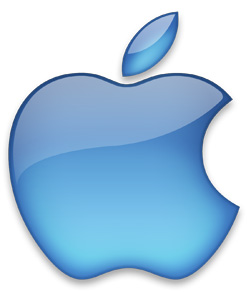
Today, Apple published a letter to customers to clear the air about older iPhones and battery performance. Starting with iOS 10.2.1, released about a year go, Apple quietly began “optimizing” iPhone performance on iPhone 6-series, 6S-series, and the iPhone SE to keep these iPhones running longer and avoid unexpected device shutdowns without warning. The problem is that Apple didn’t really tell anyone that this was going on, leading some people to point to this behavior as proof positive that Apple was underhandedly trying to encourage iPhone upgrades.
First and foremost, we have never – and would never – do anything to intentionally shorten the life of any Apple product, or degrade the user experience to drive customer upgrades. Our goal has always been to create products that our customers love, and making iPhones last as long as possible is an important part of that.
I completely believe Apple when they talk about creating products that customers will love. Slowing down the iPhone CPU to prolong the service life of an iPhone was not meant to be a malicious or user-hostile action against their customers. I firmly believe that the exact opposite is true. Apple made this change so customers could keep using their iPhones for multiple years without having to upgrade them.
While Apple still hasn’t specifically stated when this CPU slowdown to prolong daily usage starts, older iPhones that have chemically degraded batteries and are running under peak loads will be slowed down when iOS 10.2.1 or later is installed. Recently, with the release of iOS 11.2, Apple added iPhone 7 and iPhone 7 Plus to the list of devices that can be slowed down when a degraded battery is detected.
The letter to customers, posted on Apple.com is an apology to customers for the sloppy handling of how this feature, which is meant to prolong iPhone service life — not shortening it, was communicated to customers. Which is to say, for the average customer, not at all. As a long time fan and Apple enthusiast, I’m saddened to see Apple having to publish a letter like this. I strongly denied the rumors and conspiracy theories that Apple was intentionally slowing down iPhones as a means to drive revenue generation. Since Apple’s admission that they are in fact slowing down iPhones is like a punch to the gut.
So, where do we, as iPhone users, go from here? In my opinion, Apple is trying to make things right for all of their customers. Frist, Apple is apologizing for the lack of communication on this subject. Second, Apple will release an iOS 11 update early in 2018, my guess is in iOS 11.2.5 currently in the beta stage, that will give users some level of visibility into their battery’s health so they can determine whether or not they will experience a CPU slowdown due to a chemically degraded battery. And, thirdly, Apple is reducing the cost of out of warrantee battery replacements to $29 from $79.
It is important to keep in mind that this is not an “Apple problem”. All Lithium-ion rechargeable batteries have this problem. To help Apple customers better understand the implications of the changes implemented in iOS 10.2.1 and 11.2, Apple has published a new knowlege base support article iPhone Battery and Performance.
I really wish Apple had been upfront about this particular feature with the release of iOS 10.2.1. It would have saved them from getting the proverbial black eye that they are dealing with now. Apple, unlike most Android smartphone vendors, truely care about the prolonging the useful life of an iPhone. They do this by providing frequent feature updates, security patches, and, yes, even trying to optimize performance on older hardware.
Overall, I am glad Apple is taking these steps to repair and improve their standing with there customers in light of these recent revelations.
